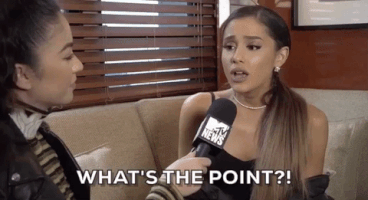While there have been many cases where I have had complications listening and paying attention, there is one situation that keeps reoccurring and I can never seem to overcome it. When I attended a college campus last year, my classes required me to sit in on lengthy lectures. Professors would ramble on and on for the whole class while I was required to take notes and try to pay attention. In some classes I could listen in and retain information easily. However, there were two classes that no matter what I tried, I could never catch on to the material. Macro-economics and Photoshop were my more difficult classes.
With the macro-economics class, the math was difficult and hard to follow. The instructor would talk for the whole class with his back to us for most of the class. When any of us students would ask a question, he would never give clear answers and would instantly try to change the subject or ignore the question completely. When we try getting a hold of him outside of class, he would never get back to us. All of his actions led to a majority of the class to deal with criticizing the speaker and information overload. His teaching style created listeners barriers for his students. In my class dealing with Photoshop, the material and information was just too complicated for me to understand. It also didn’t help that the professor spoke at such a quiet and fast rate.
The “criticizing the speaker” barrier hurt the teacher’s chances of making a positive impact. He made a horrible impression and my mind took over from there. No matter what he said or taught, all I could think of “What’s the point? He won’t answer my questions so why would I bother even asking.” I saw him as a poor educator and never paid attention for the rest of the semester, asking classmates for help instead of him. To overcome this issue, I could have used the “listen compassionately and actively” strategy. To listen compassionately, I could just tried harder to set aside my personal issues with the instructor and tried a little harder to pay attention rather than think about how awful this instructor was. To listen actively, I could have tried a little harder to show the teacher I was actually willing to learn and listen. He might have thought we weren’t interested in the class and that could have been why he didn’t put effort in answering our questions. If he saw some interest, he may have put in some effort to aid us.
The ‘information overload” barrier was a sign that there was so much going on at once. In economics, the teacher wrote notes and examples on the board so fast that I could barely get them all down on paper. On top of that, he would also pester us to answer his questions in the middle of trying to take down all the notes. By the end of each class, everyone would have to meet afterwards to compare notes to get what we didn’t get. It was the same issue with Photoshop. A better solution to this barrier could have been the “stop, look, listen” solution. While in class, I should have stopped for a second to figure out what were the important notes and examples to take notes on. I felt rushed and would just write down everything on the board. Deciding what was actually important could have freed up time to actually listen to the lesson.
With the “Differing speech and thought rate” barrier, it was difficult to hear and grasp the words of the lesson. If the teacher just spoke quiet, yet slowly, I could have picked up the information better. Adding in the fast rate made it nearly impossible to take any notes. After taking a look at all of the listed solution in the readings, none of them really seemed that they could help much in this case. However, I could think of other solutions. For instance, using a recording device could help record the notes I missed while trying to figure out what the teacher said a few seconds ago. Simply sitting closer to teacher would have been a simple fix alone.
All of these solutions to the barriers I have encountered would have helped greatly when I first encountered them. Now knowing them, I can use them in the future to further better my listening skills.























